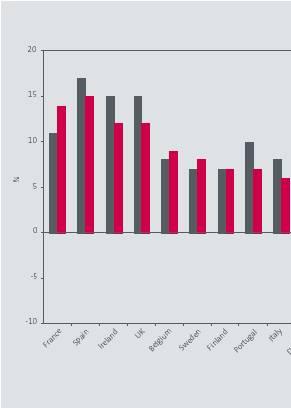Holiday homes in Spain
According to a report presented to the media here yesterday by Grupo Lar, Spain is the preferred choice of 66 percent of Britons who decide to buy a holiday home abroad. The reasons given for their preferrence are the Spanish climate (42 percent), personal or cultural reasons (30 percent) and the standard of living in Spain (15 percent). Surprisingly, less than one percent buy property in Spain purely as an investment made by a quick re-sale.
In Spain there are 3.3 million second homes and demand for holiday homes has risen on average 3 percent per year over the past decade. According to the Bank of Spain figures quoted by Lars however, the demand of foreign residents has risen much more sharply, including a rise of 147 percent in just four years. In 2003 foreign investment in Spanish real estate totalled 7,179 euros compared to 2,908 million euros in 1999.
Malaga (Costa del Sol) is the most popular choice among non-resident home-owners in Spain (45 percent) followed by the Valencian Region (Costa Blanca and Costa Azahar), the Canary Islands, the rest of Andalucia, Catalunya, Murcia (La Manga and Costa Calida) and the Balearic Islands. A recent study carried out by IESE estimated that that by 2008 foreign demand for holiday homes will have exceeded domestic demand in Spain. The great majority of non-resident property buyers are first British and second German and this trend is expected to continue.
Related links:
Buying property in Spain
Buying land in Spain
Houses for sale Costa del Sol, Spain
News about Spanish property market
In Spain there are 3.3 million second homes and demand for holiday homes has risen on average 3 percent per year over the past decade. According to the Bank of Spain figures quoted by Lars however, the demand of foreign residents has risen much more sharply, including a rise of 147 percent in just four years. In 2003 foreign investment in Spanish real estate totalled 7,179 euros compared to 2,908 million euros in 1999.
Malaga (Costa del Sol) is the most popular choice among non-resident home-owners in Spain (45 percent) followed by the Valencian Region (Costa Blanca and Costa Azahar), the Canary Islands, the rest of Andalucia, Catalunya, Murcia (La Manga and Costa Calida) and the Balearic Islands. A recent study carried out by IESE estimated that that by 2008 foreign demand for holiday homes will have exceeded domestic demand in Spain. The great majority of non-resident property buyers are first British and second German and this trend is expected to continue.
Related links:
Buying property in Spain
Buying land in Spain
Houses for sale Costa del Sol, Spain
News about Spanish property market




